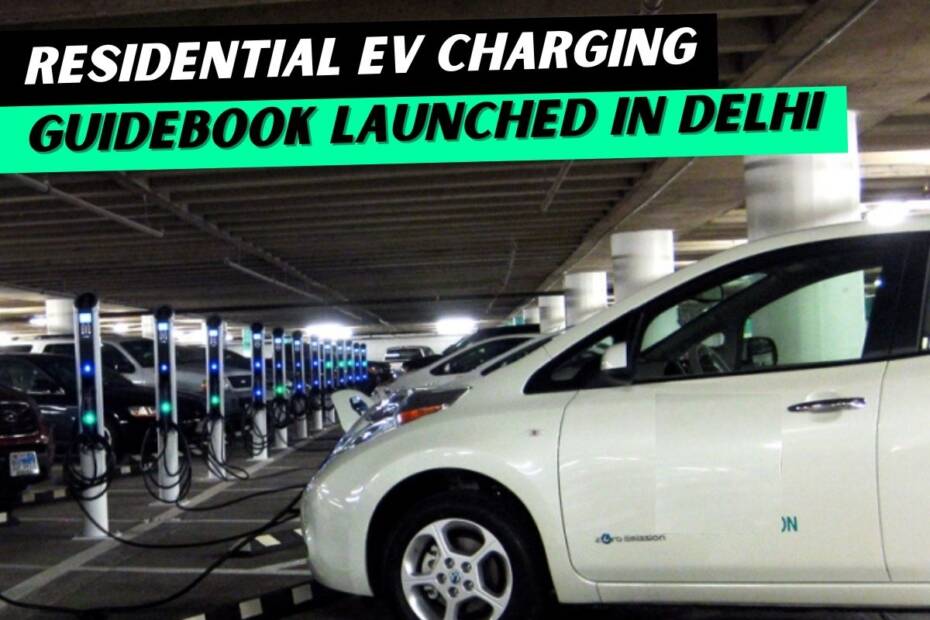A guidebook on “Residential EV Charging” is launched by The Dialogue and Development Commission of Delhi today in collaboration with the World Resources Institute with a vision of standardizing EV Charging norms in residential buildings around the city.
Highlights:
- The DDC in collaboration with WRI launched a guidebook for installation of EV Chargers in residential areas of Delhi.
- The guidebook to clarify the doubts regarding power load, investment or space occupation and formulate standard norms.
- Inauguration of two new EV chargers under the single window facility provided by Delhi government.
The Dialogue and Development Commission of Delhi has launched a guidebook on EV charging in the residential areas of Delhi on Monday, in collaboration with World Resources Institute. The guidelines clearly state the importance of EV chargers and guidelines for installing and managing EV chargers in the society parking area.
GUIDEBOOK: Residential EV Charging Guidebook
By the launch of EV charging guidelines in residential areas, Delhi has become the first state government to include the participation of residential areas in the EV movement. Residential Welfare Association has been showing a positive approach and interest towards the work of the Delhi Government for the shift to green mobility.
The new EV guideline also focuses on some common problems of the Resident Welfare Association that would arise as a result of these installations like the power load management, investment for setting up of EV Charging facility, and lack of additional space required to set up EV chargers.
EV Charging at home
Considering the fact that over 80% of EV charging happens at home, it is a must for the state & central government to devise norms to ease the process. Providing an easy process for the installation and charging of EVs at home is a must for achieving the expected goal towards the shift to electric mobility.
This guidebook addresses these issues by facilitating a standard norm for the installation process with a vision for providing access to EV charging across all the colonies of Delhi. With this initiative, the Delhi government has laid an exemplary roadmap for other states wanting to develop EV charging infrastructure.
The guideline highlights the role of RWAs and residential areas in the EV revolution.
Green Flag for Two new EV Chargers.
Right after the inauguration of the largest EV charging station of India in Gurugram, Delhi’s transport minister, Kailash Gahlot inaugurated two new EV chargers at Pockets B and C and Vasant Kunj, under the Delhi government’s single-window facility.
The guidebook urges residential societies, planned colonies, DDA flats, Cooperative Group Housing Societies, government housing societies, and employer housing for the adoption of EV charging in their premises.
This step by RWAs and societies would in line with the State government’s work towards the promotion of clean mobility.
DDC vice-chairperson Jasmine Shah in her statement said that RWAs across Delhi have expressed their interest in the Delhi government joining the EV revolution.
Delhi’s EV Policy
With an aim to promote clean mobility in the state and to make Delhi the EV-rich capital of India, the Delhi government launched its revolutionary electric vehicle policy for EV charging infrastructure and EVs in August 2020. Post the launch, the Delhi govt is highly anticipating to witness a major change in the air quality index across the state with the adoption of the EV ecosystem in the state.
In the EV policy, the Delhi government directed all the residential communities with a parking capacity of 100 or more, to reserve 5 percent of their parking space for EVs with EV chargers with a minimum output of 3.3 kW.
Delhi government offers a 100% grant on the purchase of EV charging equipment of Rs 6,000 up to 30,000 charging points across the city, along with the provision of a separate lower tariff for EV charging purposes.
Delhi government reported an exponential rise in the sale of electric vehicles across the state, post its policy updates. Towards the end of 2021, 9% out of total vehicles sold in Delhi were electric vehicles.
READ MORE: State-wise electric vehicle policy in India | EV battery swapping policy
Post the launch of these supportive government policies, Delhi witnessed an exponential rise in the sale of EVs in the state. As a result of which, out of total vehicles sold, 9% were electric vehicles in the state.
